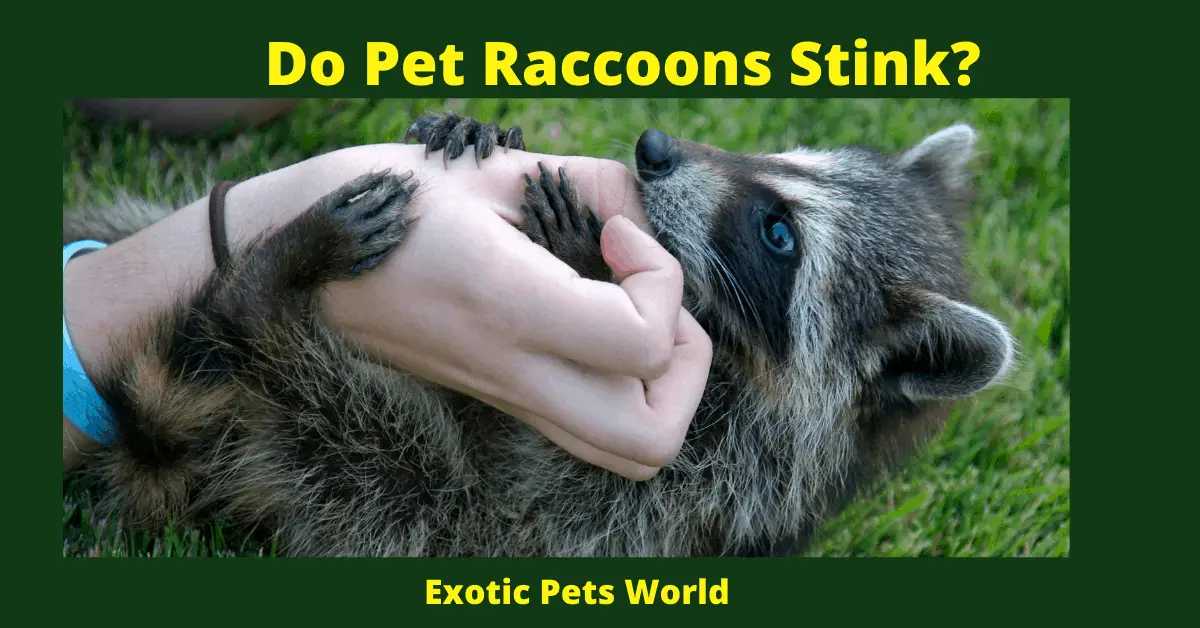Do Pet Raccoons Stink?
Do pet raccoons stink? Most connoisseurs of exotic dogs, when they have a reputation for cleanliness, favor raccoons. These creatures are real and very clean, considering their vigor, omnipresence, and severe frustration.
Like it does with skunks, the masked raccoons do not exude any excessive, special and unique scent. Body odor would, of course, be present; raccoons also sweat. But can a raccoon scent if it is taken care of in a particular way? – If someone will catch the fragrance of this raccoon, it would be the smell of an ordinary wool coat, no more, no less.
To keep your raccoon fresh at all times, in his corner or cage, that is, where his permanent position is set up, where his feeder and drinker are and where his toilet tray is located, you would need to ensure excellent sanitation and hygiene.
Do Pet Raccoons Stink if not Cared For?
Yes, there may be a scent. They are the scents of his urine, more frequently than not. Raccoons that are, mating, are extremely sensitive to the odor during the rutting season. They also use the litter box to draw the opposite sex’s interest.
Seasoned raccoon owners give significant attention to cleaning the enclosure. What constitutes cleaning?
- They delete all utensils from the enclosure.
- An odorless detergent wipes all the walls, floors, and ceilings.
- They wash the dishes and the litter box.
Some people wash the cage with warm water and use baking soda to scrub off the cages. It would help if you entrusted this operation to a dishwasher. Both bowls and trays are washed.
As long as it doesn’t slip in or have the poop over its fur, a coat won’t stink. Even the secret to wellbeing is cleanliness. You’re taking charge of his welfare and ensuring good ventilation and hygiene in your pet’s cage.
You ought to adjust the flooring to a little slope, in addition to washing the cage and dishes. Specific rags are most commonly brought to the cage in which the striped animal burrows and rests.
Raccoons prefer to rest on sawdust and dried leaves in comparison to rags. It is best to move the sleeping area to a cage or box.
Temperament and Behavior
Raccoons exhibit a wide range of temperaments. Some are hostile and territorial; others are polite and curious, and at the first chance, yet others can turn and run.
They can become, no longer gentle and cuddly a wildlife expert when they hit sexual maturity at about six months of age, Owners warn that suddenly and without warning, your formerly friendly pet raccoon could give you a severe bite.
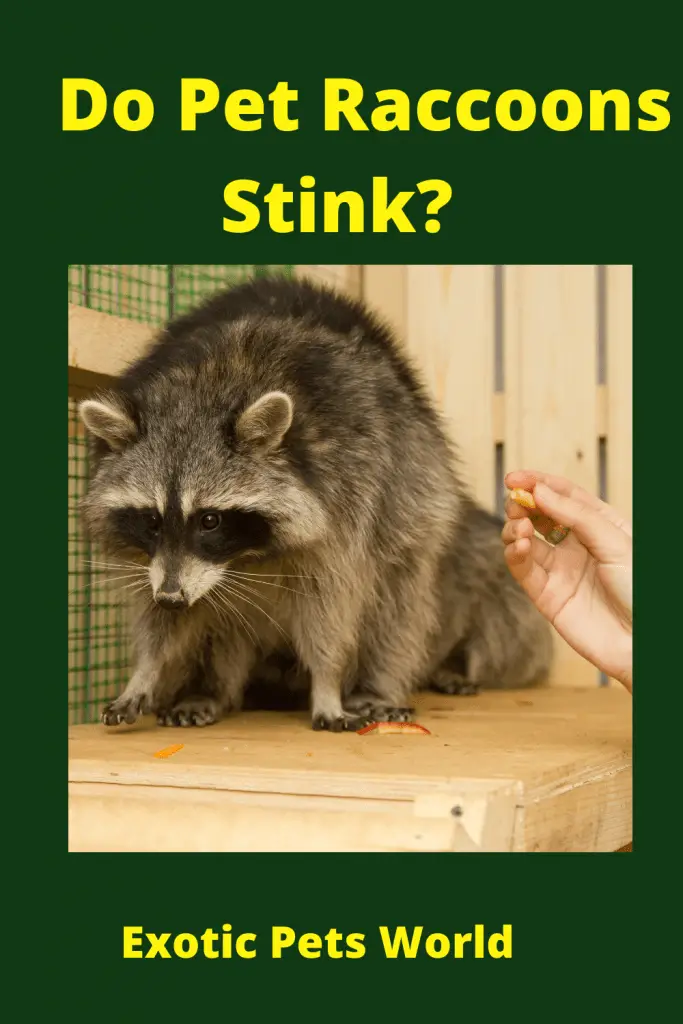
There are many instances where individuals keep pet raccoons and suddenly find themselves under attack one day without warning. Yeah, exceptions occur, although certain raccoons are more violent than others.
But with a raccoon as a cat, you shouldn’t take a gamble. Raccoons are smart animals; how else would they manage to get into so many trash containers “animal-proof”?
They can perform many tasks, such as opening latches and doors, unscrewing lids from jars, and more with their dexterous, long-fingered paws. The devastation that a raccoon will wreak on an innocent home can be expected. Many Homeowners have come home to find a lot of damage to a searching and curious raccoon.
They are very messy animal when kept as a pet, everybody knows. Raccoons don’t just eat their food; they spread it all over the place or drink their water. They’re climbing, and they’re prying open cabinets, and they’re taking things apart.
It may sound cute, but it means a lot will be destroyed if a raccoon is in your house. Racoon Proofing your house will be a challenge. They are best left in a big pen, plenty of room with lots of toys and climbing things.
Finally, raccoons are nocturnal, which suggests that at night they are most active. And, being omnivorous, the other pets could be targeted. Raccoons, like little cats and rabbits, and can be pests of domestic livestock.
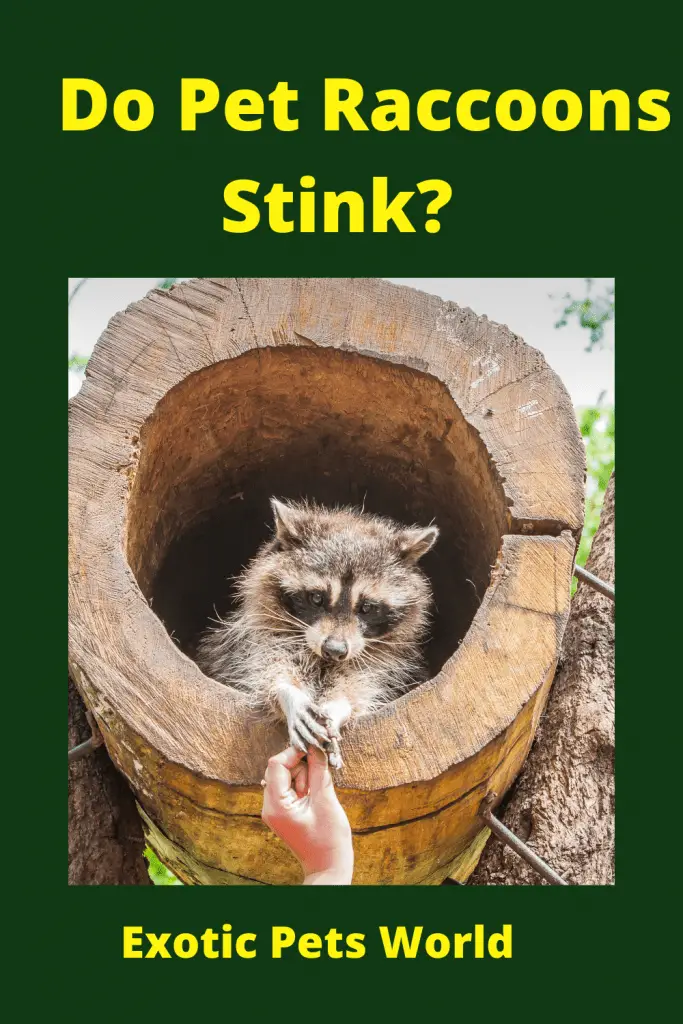
Housing the Raccoon
When they are not around to watch their animals, certain people who keep raccoons house them in a big dog crate. Raccoons, though, are too busy for multiple hours in a cage to be happy.
So much of a pet raccoon’s time can be spent roaming, playing, jumping on stuff, discovering, and becoming mischievous in your home. That means it must be raccoon-proofed in your house. Chewing on ropes, jumping on tables, and throwing down valuables are vulnerable to raccoons.
So something that may harm or injure them must be eliminated from their pen, or even reach.
It’s ideal to have a safe outdoor cage for your raccoon if you have the room. When you’re busy or need to escape your home and want your pet to have a fun place to play, this is a perfect choice. With walls and a roof that can protect your animal, an outdoor pen can be as wide as practicable.
Many people create their wooden pen and screen. Within climbing and leaping, branch structures, your raccoon should have access to food, water, shelter, and structures (e.g., large branches). Include games for keeping your pet happy, such as balls and food puzzles.
Food and Water
Raccoons are omnivores, suggesting that they consume meat and vegetables. Give a diverse diet to your animals, including dog food, meat, birds, eggs, butterflies, fruits, and vegetables. To combat obesity, snacks such as nuts and other fried foods can be given sparingly. There should be a dish of clean water at all times open. The volume and range appropriate for your animal visit your vet doctor since these may differ depending on age, size, and degree of operation.
Raccoons are dirty eaters. Before eating it, they want to dip their food into their water bowl.
That means you would need to adjust their water periodically and serve them in a spot where it is simple to clean up. In the early morning and late evening, most adult raccoons require two meals a day but obey your vet’s recommendations. You should easily add a bowl of their food to it. But as a type of entertainment for his curiosity, it is also suitable to take some of it to use in food puzzles or conceal around their enclosure.
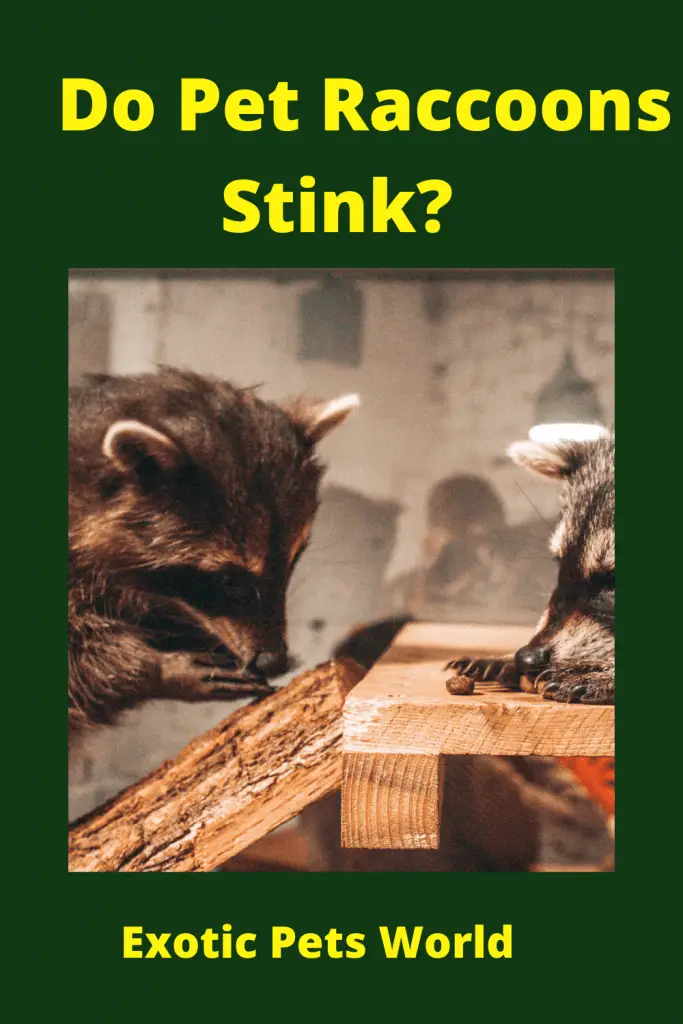
Common Health Problems
Raccoons, including microbes, influenza, and parasites, are vulnerable to a wide variety of various health and infectious agents. Zoonotic disorders are some of these contagious diseases. Veterinarians are presented with animal diagnosis and care, like raccoons. They need to be prepared to make the right diagnosis and advise clients about the possible dangers of raccoon exposure.
Leptospirosis, triggered by various types of Leptospira, is a widespread bacterial disease in raccoons. It is suspected that transmission occurs through urine contamination of feed and water. The diagnosis of Antemortem is based on urinary serology and darkfield analysis.
Histopathological analysis and liver and kidney fluorescent antibody monitoring are two postmortem tests that may be conducted to confirm leptospirosis better. Listeriosis, yersiniosis, pasteurellosis, and tularemia are other natural bacterial infections recorded in raccoons.
Rabies, canine distemper, raccoon parvovirus enteritis, bacterial canine hepatitis, and pseudorabies are infectious disorders in raccoons. Rabies is a zoonotic illness in Pennsylvania and New England that is common to raccoon species. A move in rabies-contaminated raccoons westward into Ohio has occurred in recent years.
Infection with the canine distemper virus is potentially the most common infectious illness in raccoons.
The clinical symptoms of raccoons are close to distemper in dogs with gross and histopathologic lesions. Neurological symptoms of raccoons are practically indistinguishable from rabies-caused neurological illness owing to distemper virus infection.
Diagnosis is focused on prefrontal, liver, spleen, and small intestine histopathological lesions. In several cells, including epithelial cells in the respiratory epithelium, gastric mucosa, and intermediate epithelium lining the renal pelvis and urinary bladder, intranuclear and intracytoplasmic inclusion bodies may be visualized.
The lung, brain, stomach, small intestine, kidney, and urinary bladder are the ideal tissues for fluorescent antibody research and canine distemper virus isolation.
A special raccoon parvovirus that is most antigenically related to feline parvovirus is linked to parvoviral enteritis in raccoons. Bloody diarrhea, lethargy, lack of appetite, and loss of human fear are health symptoms.
Raccoons, when subjected to canine parvovirus, may not acquire psychiatric illness. Diagnosis is focused on necrotizing enteritis histopathologic lesions and the recognition of the virus by fluorescent antibody examination.
Ingestion of virus-infected pig carcasses is the most frequent way raccoons develop an infection with the pseudorabies virus.
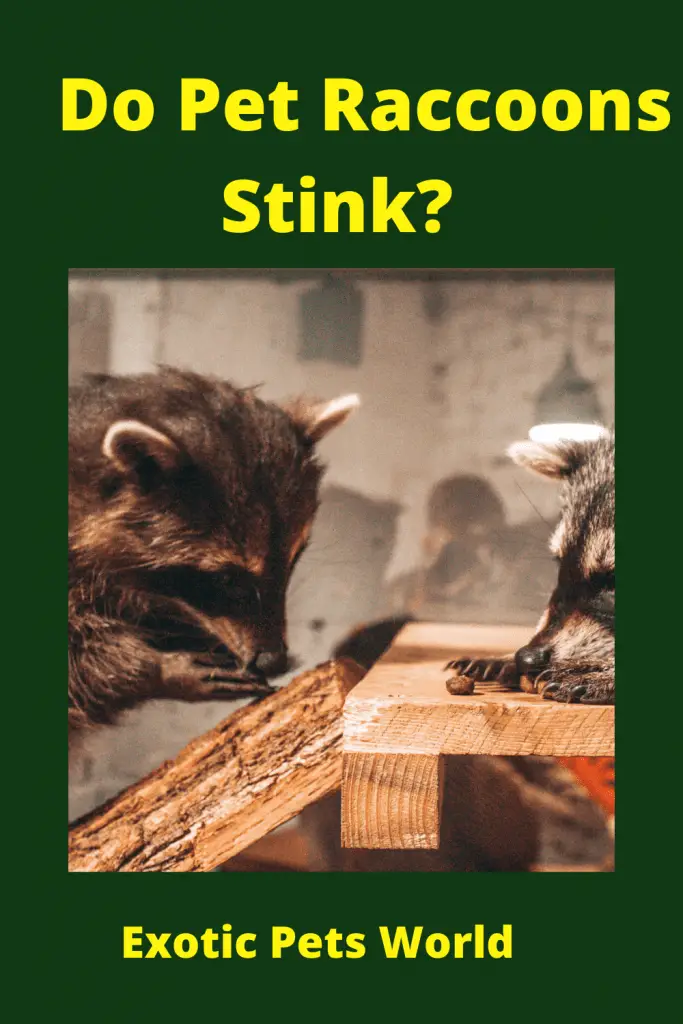
Racoon Parasites
Toxoplasmosis, which is a protozoal disorder triggered by Toxoplasmagondii, is a significant infectious disease in raccoons. Felids are the definitive host for T. Gondii, and in their urine, they excrete highly infectious oocysts. Immunosuppression from canine distemper virus infection is generally linked with toxoplasmosis in raccoons. Frequent lesions consistent with toxoplasmosis are necrotizing encephalitis and pneumonitis.
Baylisascarisprocyonis is another organism with an interest in raccoons and is an intestinal roundworm in raccoons. In domestic and non-domestic species and humans, Baylis Ascaris is a recognized source of cerebral nematodes and ocular and visceral larval migrants.
Transmission happens commonly by consuming infected larvae, culminating in the aberrant movement to hosts other than raccoons.
Do Raccoons Make Good House Pets?
It’s no wonder people choose to have raccoons as pets. They are incredibly cute animals with lovely smiles whose antics are enjoyable to see. Raccoons, two of the most common domestic pets in the country, are also about the same size as cats and dogs. Keeping them as pets, baby raccoons, are usually kept until they become adults.
In reality, there have been several efforts over the years to domesticate raccoons, but they are distinct from cats and dogs in that they may not be domesticated.
Raccoons do not lose their innate nature and, in captivity, may be violent and damaging. Pet raccoons are high-maintenance, which may become problematic easily.
Is it Bad to Have a Pet Raccoon?
These days, since raccoons are adorable, clever, and almost everywhere, people always wonder whether they’d be nice pets. For many factors, the conclusion is no.
- It is unconstitutional: it is illegal to have raccoons as pets in Canada, as they are, along with many other exotic creatures, on the ‘prohibited animals list.’
- It’s unethical: feral animals are raccoons. Capturing a stable wild animal and requiring it to spend the remainder of its life in captivity is cruel and unlawful. In their natural habitat, wild animals need to be.
- They have been known to attack family members, family pets, guests, and their pets: Raccoons are infamous biters. They will unexpectedly become very violent as they sexually mature at six months of age and strike.
- Zoonotic parasites and infectious diseases (including rabies) that pose a danger to you, your relatives, and other pets may even be borne by raccoons. The raccoon droppings can include roundworm raccoons. It can and does infect humans with this parasitic worm. The egg spores are light and can become airborne in the raccoon droppings, and individuals can breathe them in and become sick. Human infection may contribute to the movement of larval parasites to the central nervous system. As dry pods, these egg spores will live for years. For humans, especially infants, this is a really dangerous thing.
- They can be messy: before raccoons eat, the food is first cleaned and “massaged.” They love to unlock cabinets, pots, and latches using their five flexible fingers to making off with everything they find fascinating. They can render them wider and do more harm if they locate tiny gaps in your house.
- You have to ask someone who can take care of your animals while you go on holiday. Bear in mind as dogs and cats have boarding facilities, Raccoons do not.
- It’s almost difficult for raccoons to be house trained. Training a raccoon to use a litter box may take months.
- They are quicker and bigger than you might expect, spanning more than two feet in length, weighing up to two dozen pounds, and traveling at speeds of around 15 miles an hour.
- Not many veterinarians work with raccoons, so it may be complicated and pricey to locate help and medication if your pet raccoon gets ill.
It can be a fear of your neighbors, their pets, and their children if your pet raccoon escapes from the home. Often, as a result of being domesticated, if the raccoon survives and runs out into the wild, it would not have the requisite survival abilities to live in the wild, rendering its odds of survival small. Many Rescue Offices get calls from homeowners here to get raccoons out of their homes due to the destruction they do.
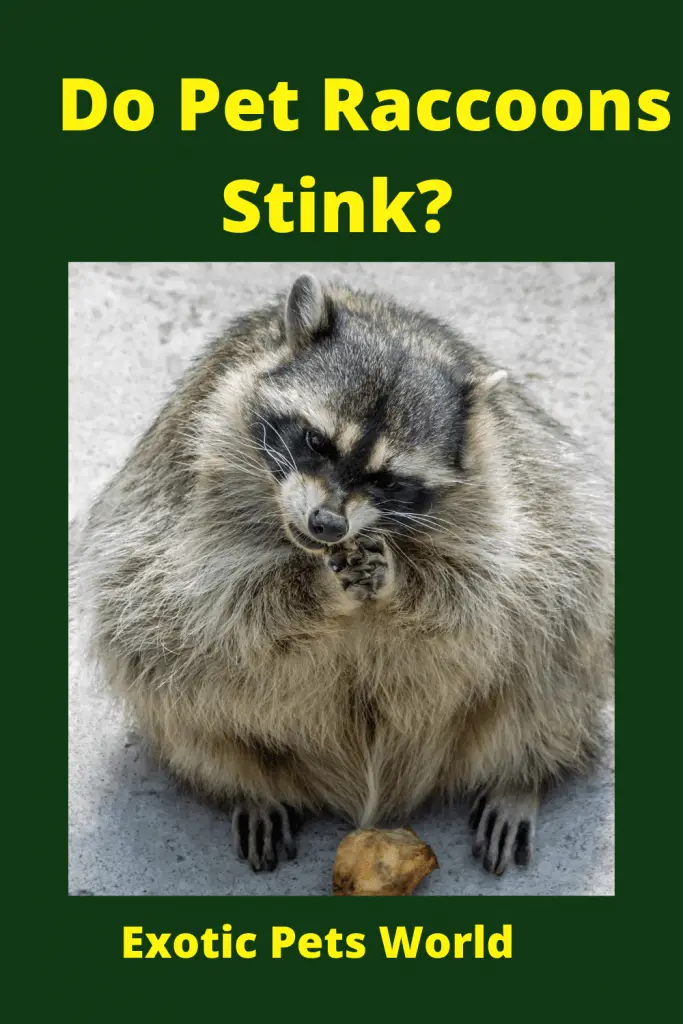
Can You Domesticate a Racoon?
Although raccoons are cute, you’re far better off admiring them from afar rather than coveting these masked rodents as pets, including squirrels and other typical neighborhood animals.
Young Raccoons are not very easily domesticated, unlike cats, dogs, and other household pets. And most domestication efforts consistently fail.
Raccoons are lone animals who, when mishandled, appear to become violent and damaging. They don’t interact with people as dogs and cats do, and you’re at risk for bites and even dangerous infections by having them as a pet.
Call the nearest wildlife department if you come upon a raccoon in need of assistance. They would be allowed to put the animal in a certified training facility and raise the probability that the animal will return to the wild.
What States is it Legal to Have a Pet Raccoon?
You must make sure it is legal to possess it in your state before suggesting having a pet raccoon. Holding pet raccoons as pets in many states is unconstitutional. A wild animal permit is commonly necessary for states that permit pet ownership of a raccoon.
In addition to these laws, search for regulations for owners of raccoons as well. “Such regulations often answer questions such as, “What happens if anyone is scratched or bitten by my raccoon? Since raccoons are feral animals, if your raccoon is a concern, they may be euthanized.
In the following jurisdictions, it’s legal to keep a pet raccoon:
- Texas
- Rhode Island
- Oklahoma
- Pennsylvania
- West Virginia
- Arkansas
- Delaware
- Florida
- Indiana
- Nebraska
- North Carolina
- South Carolina
- Virginia
- Michigan
- Wyoming
- Wisconsin
Those searching for a pet raccoon should search for different laws for owning a raccoon in states where having a pet raccoon is legal. In North Carolina, for instance, a vet would authorize the animal before it is introduced into the state. An individual in Arkansas may not own more than five of them at a time.
Before buying an exotic pet, note, it’s necessary to review all state and local rules.
Do Raccoons Give off an Odor?
Raccoons have very heavy smelling urine and, not to mention their poop, may also be smelled from inside the home, which is also very foul and bad smell. They break through insulation, matting it down, triggering the loss of electricity. They damage attic fans, roof vents, gable vents, and others.
They eat holes in some bare wood as well. Their urine, blood, and the capacity to bear various pests and pathogens, including mites, lice, fleas, larvae, viruses, mange, rabies, and distemper, trigger biohazardous environments, any of which may be spread to humans and livestock.
Final Thoughts
Ask yourself these questions while you are determining whether or not a raccoon is a suitable companion for you:
- Are you able to take all the measures on disease transmission for yourself and your household?
- Have you got a trained vet ready as a patient to carry your raccoon to? If so, is there a vaccine schedule in effect for the vet?
- Are you prepared to make your home not only child-proof but also raccoon-proof? To keep the pet raccoon from getting into cleaners, garbage, the refrigerator, you name it, you’ll need to take action.
- Will you work with an animal that’s mainly busy in the night hours?
- Will you have small children or other pets that your raccoon might not get along with?
The Raccoons are famous biters. Whenever they are threatened, they are also susceptible to chewing, so be prepared for this to happen, and it will. Early on, when they are young raccoons, we suggest lots of socialization. At an early age, the more raccoons are accustomed to being treated socially, the more that can tend to make them more friendly and less prone to bite, as they get older.
